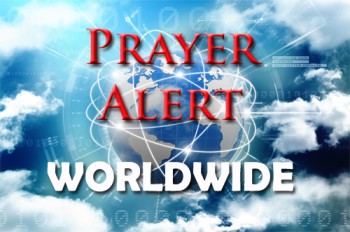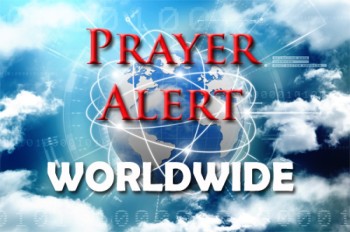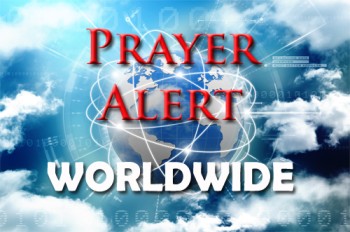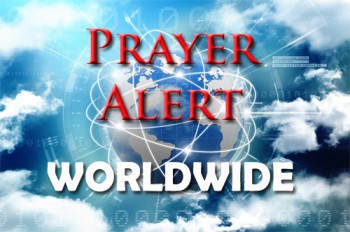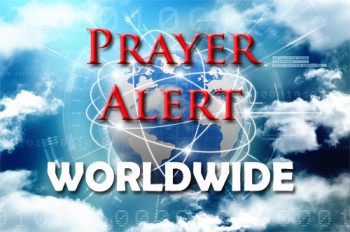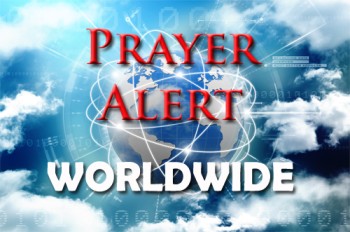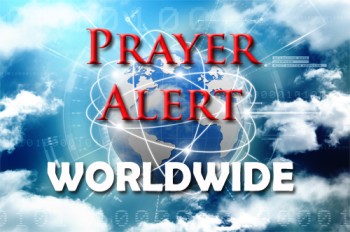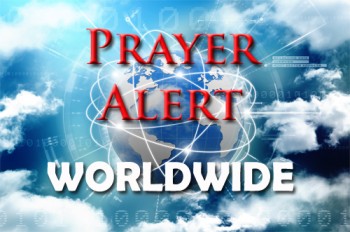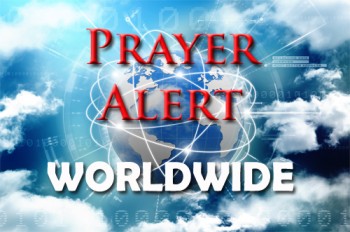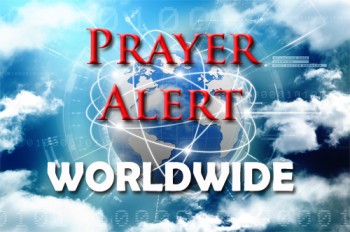Displaying items by tag: Tigray
Ethiopia: nearly 400 have died of starvation
Ethiopia's national ombudsman has revealed that nearly 400 people have died of starvation in the Tigray and Amhara regions in recent months. Local officials had previously reported such deaths, but the federal government had denied these claims. The UN and the USA had suspended food aid in Tigray and Ethiopia after discovering a ‘large-scale’ scheme to steal humanitarian grain. but lifted the pause in December after implementing reforms. However, Tigray authorities claim that food is not reaching those in need, citing technical issues and funding shortages. Only 14% of the 3.2 million people targeted for food aid in Tigray had received it by 21 January. The Tigray Food Cluster, a group of aid agencies, has urged immediate scaling up of operations to prevent severe food insecurity and malnutrition, particularly among vulnerable children and women. Approximately 20.1 million people across Ethiopia require humanitarian food assistance due to drought, conflict, and economic challenges.
Ethiopia: Pray for change
In Ethiopia’s first free and fair election last year, after decades of repressive rule, the Prosperity Party won. However, an opposition boycott and the war in the Tigray region that left many dead and two million people displaced overshadowed the election. Prime Minister Abiy Ahmed has now lifted a ban on opposition parties, released tens of thousands of political prisoners, and is opening up one of Africa’s last untapped markets. Praise God that the Inter-Religious Council has declared a week of prayer. Pray that calls for peace will be amplified on all fronts as the prayers are broadcast on religious and secular television channels and pray that the ethnic battle will stop. Pray that the frightened people will receive encouraging counselling to release their stress and anxieties in productive ways. Pray that in the new regime, multitudes will hear the Gospel and many will accept Jesus Christ as their Saviour. May they be trained to grow in faith through the efforts of the Churches.
Ethiopia: civil war
Drone strikes have killed ten civilians and wounded thirteen in the capital of Ethiopia’s Tigray region. Tigray hospitals are cut off from vital supplies, putting the wounded in more danger. The civil war in Ethiopia ignited again in recent weeks. The Tigray Liberation Front offered a ceasefire, but the Ethiopian central government has yet to respond. Unfortunately, some Christians within Ethiopia have advocated for continuing attacks. People calling themselves prophets have arisen among the evangelical leaders, who are quite strong across Ethiopia in their support of the government. They say, ‘God is with you. Now is the time to move forward with the attack.’ After many months of fighting there are ongoing challenges of electricity being off and banks closed. But churches have continued to meet. Under the pressure of hunger and lack of peace, they still worship and serve the Lord. They are like North Korean and Chinese Christians.
Ethiopia: over 200 killed in massacre
An ongoing civil war threatens to tear Ethiopia apart. The latest event is a massacre of over 200 members of the Amhara ethnic group on 19 June. Witnesses claim the Oromo Liberation Army (OLA), a group authorised by the government, was responsible. The OLA denied carrying out the killings, claiming it was committed by a militia group aligned with prime minister Abiy Ahmed and his regional government. The northern region of Tigray saw a rebellion in 2020; this massacre is the worst since then. No one is innocent in this ongoing civil war - both sides have committed mass killings, sexual violence, and ethnic cleansing. The Tigray Liberation Front has joined forces with the OLA against the government on many occasions. Mr Abiy faces many challenges trying to consolidate power among the many ethnic groups, especially the Amharas. Please pray for the different ethnic groups to realise they must work together for peace in nonviolent ways.
Ethiopia: ‘let’s die at home’
Ayder Referral Hospital, Tigray’s main hospital, is now turning away sick people they can no longer treat. They have run out of supplies, casting doubt on the government’s claim to have opened the war-torn Ethiopian region to humanitarian aid. 200 patients, including babies with meningitis and tuberculosis and a 14-year-old boy with HIV, have been turned away. Two cancer patients waiting for operations were turned away due to no cancer drugs. These needy people are suffering from widespread famine and the ravages of a brutal 17-month war. Officials said they could only accommodate patients with food or money. A paediatric ward nurse said ten patients left when there was no more food: they said, ‘Pray for us; instead of dying here let’s go home and die there.’
Ethiopia: a seemingly inescapable quagmire
Since hostilities began last November, there have been rapes and massacres of civilians on a large scale. As far back as January, aid agencies were sounding alarms about how much worse the situation could get. Continued fighting, bureaucratic hurdles, and aid blockades have since led to a continuing famine affecting hundreds of thousands of people. More than two million people have been displaced from their homes, and tens of thousands have died. The declaration of a nationwide state of emergency by the federal government on Tuesday has triggered fears of more instability. The war has degenerated into a brutal conflict to crush and erode Tigray, and talk of elimination of entire ethnic groups has been normalised. The USA has sent a special envoy to Ethiopia for talks, and on 16 November there will be a meeting of the East African bloc Intergovernmental Authority on Development to discuss the worsening conflict.
Ethiopia: unprecedented malnutrition
The UN warned of ‘unprecedented’ malnutrition among women and children as fears of mass starvation grow in Ethiopia’s embattled Tigray region. Ethiopia has expelled seven senior UN officials, including the head of UNICEF, for ‘meddling’ in its affairs. They suspended the operations of Doctors Without Borders and the Norwegian Refugee Committee, accusing them of spreading ‘misinformation’ about the war. Last November the prime minister sent troops to topple the Tigray People’s Liberation Front (TPLF) in response to its attacks on army camps. UN aid chief Martin Griffiths reported a three-month ‘de facto blockade’, restricting aid to 10% of what is needed for six million people. 400,000 people have ‘crossed the threshold into famine’. Federal officials blame TPLF for obstructing deliveries, but the US State Department said access to essential supplies and services was ‘being denied by the Ethiopian government’ and there were ‘indications of a siege’.
Ethiopia: crisis for children
UNICEF is underscoring the need for continual aid for children amid a worsening situation in the Tigray region of Ethiopia. Five months since the conflict began, a picture is emerging of killings and sexual violence against women and children. UNICEF reports schools and health centres looted, vandalised, and occupied by armed groups. In addition, deliberate attacks of violence and looting have left 60% of health care facilities not operational. 57% of boreholes (providing water) in 13 towns are not functional, and a quarter of the region’s schools have sustained damage. Although UNICEF and partners give humanitarian aid to the needy, there are urgent needs for children’s protection. Fighting, media blackout, and government-imposed restrictions leave humanitarian organisations unable to provide adequate aid, and they have had difficulty accurately gauging the need. Basic service outlets must be protected and the safety and security of everyone working in and accessing those services guaranteed.
Ethiopia: surge in violence - 1,000 deaths
Up to 1,000 people – including priests and church leaders – were killed in recent attacks in Ethiopia. A Belgium-based nonprofit organisation released reports of 1,000 people hiding in an Orthodox church in Aksum, thought to contain the Ark of the Covenant. They were brought out and shot in the square. 750 were definitely murdered, and possibly more of the injured died later. Inside Ethiopia there is political conflict. The government’s term of office ended in September, and the May elections were cancelled due to coronavirus. This has created political unrest where Christians and Muslims are dying in a long line of fatal assaults against innocent people in the Tigray region. 154 were killed in December in Maryam Dengelat, and ten from one family were killed on Christmas Day. Also, Eritrean troops have been killing dozens.
Ethiopia: thousands displaced by conflict in Tigray
Ashenafi Hailu was racing on his motorcycle to the aid of a friend trapped by the Ethiopian government’s military offensive in the Tigray region when a group of men on foot confronted him, identifying themselves as militia members of a rival ethnic group. They dragged him by a noose to save bullets. As the noose tightened around his neck he thought he would die. He passed out and awoke alone near a pile of bodies. His motorcycle and cash were gone. Nearly 50,000 Ethiopians fleeing Tigray have sought safety in Sudan, in what the UN called the worst exodus of refugees Ethiopia has seen in over two decades. Reports of looting, ethnic antagonism, and killings are at odds with Ethiopia’s prime minister saying, ‘No civilians are being hurt.’ Worrying prospects are that the fighting is degenerating into a guerrilla war that could unravel both Ethiopia’s national fabric and the stability of the entire Horn of Africa region, including Eritrea and Sudan.
